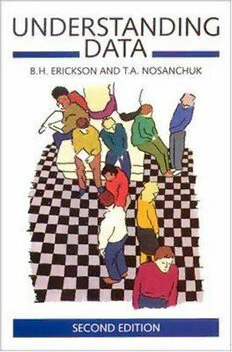
Understanding Data, 2nd Edition PDF
391 Pages·1992·32.695 MB·English
Most books are stored in the elastic cloud where traffic is expensive. For this reason, we have a limit on daily download.
Preview Understanding Data, 2nd Edition
Description:
For statistics to be used by sociologists, and especially by students of sociology, they must first be easy to understand and use. Accordingly this book is aimed at that legion of professional sociologists and students who have always feared numbers; it employs much visual display, for example, as an easy way into the data. Also, the book is written in a relaxed and enthusiastic way that reassures apprehensive students without watering down what they must be taught. Classical statistics were developed to meet the requirements of the natural sciences; as such they reflect the more deductive nature of hypothesis development in these sciences. However, they have offered the sociologists little in the way of techniques for exploring messy data in the context of incomplete theories. This book attempts to remedy those weaknesses, and it emphasizes exploratory data techniques which sociologists will find useful in their day-to-day research. The primary characteristics of exploratory techniques discussed by the authors are simplicity, resistance and elucidation. Its coverage is from basic statistics up to multiple regression and two-way anova. The inter-relationship between exploratory and confirmatory techniques is stressed, and, through the alternating presentation of each, the students learn to master data analysis: to be and to feel in control.
See more
The list of books you might like
Most books are stored in the elastic cloud where traffic is expensive. For this reason, we have a limit on daily download.
